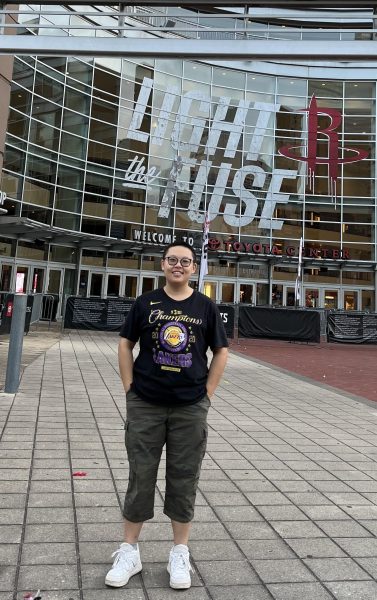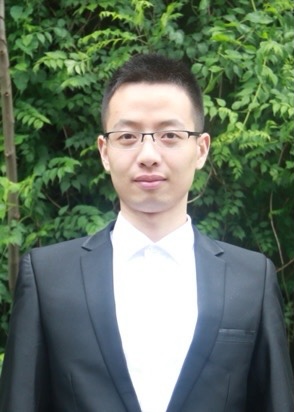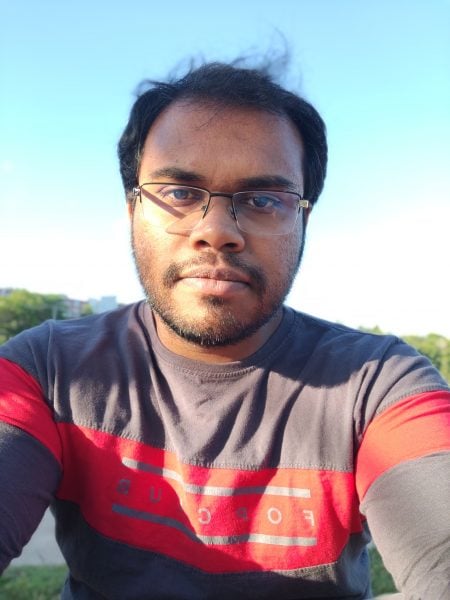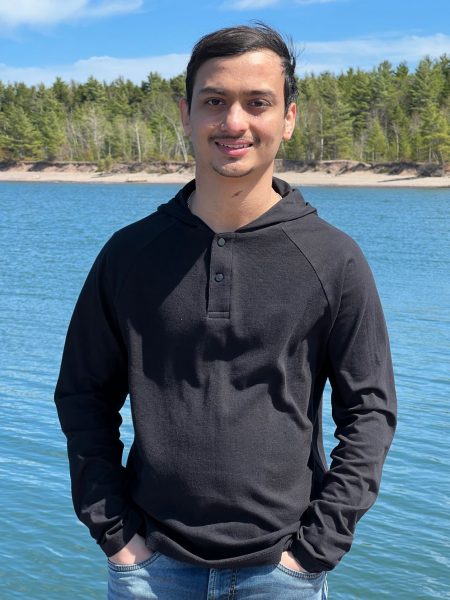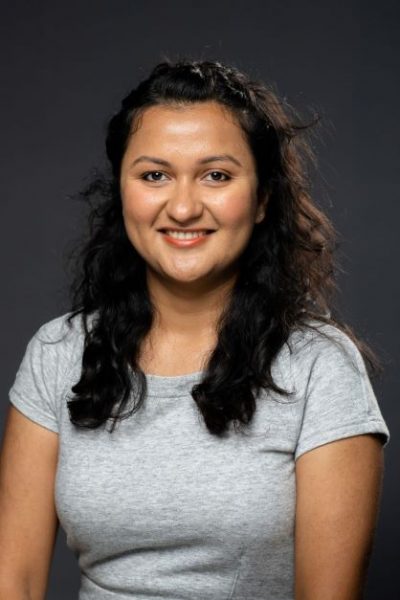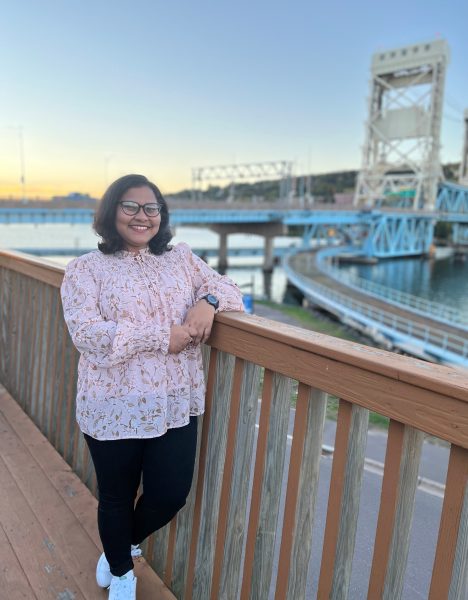My journey in the field of GIS and Remote Sensing started back home in India when I was working with the Space Application Center, Indian Space Research Organization in the year 2016. The joy and happiness I received from looking at the Remotely Sensed imageries for hours and to discover the things I can achieve with the use of GIS techniques made me firm to pursue further into this field.
I arrived at Michigan Tech for my master’s in the field of GIS in Fall 2016, in the College of Forest Resources and Environmental Sciences and was fortunate enough to begin my MTU journey with my advisor Dr. Ann Maclean. After completion of my MS degree, I started my PhD in Spring 2019 with Dr. Maclean. During my research, I focused on using high and ultra-high spatial resolution NAIP and Drone (UAS) imageries to map and monitor the natural habitat communities of the Hiawatha National Forest using machine learning algorithms. The goal of this study was to develop a robust approach using remotely sensed imagery and geomorphological variables to classify the complex vegetation and wetland communities and generate GIS maps which can be extremely useful to resource managers and/or officials to manage the forests in a timely and efficient manner, monitor vegetation changes, and help in enhancing decision making. Along with my PhD research, I am part of a national-level Forest Health Mapping project with the U.S. Forest Service since Fall 2018 where we use high-resolution NAIP imagery along with other variables and developed a model to detect and map individual tree mortality.
I have fully enjoyed my MS and PhD life in the Keweenaw Peninsula, Houghton and CFRES-MTU has awarded me with some of the best things, memories, and blessed people in my life. I am full of gratitude towards my advisor Dr. Ann Maclean for her constant support and guidance throughout this journey at MTU. I am grateful to the Graduate Dean Awards Advisory Panel for the finishing fellowship award and to help me get one step closer to my endeavors.


